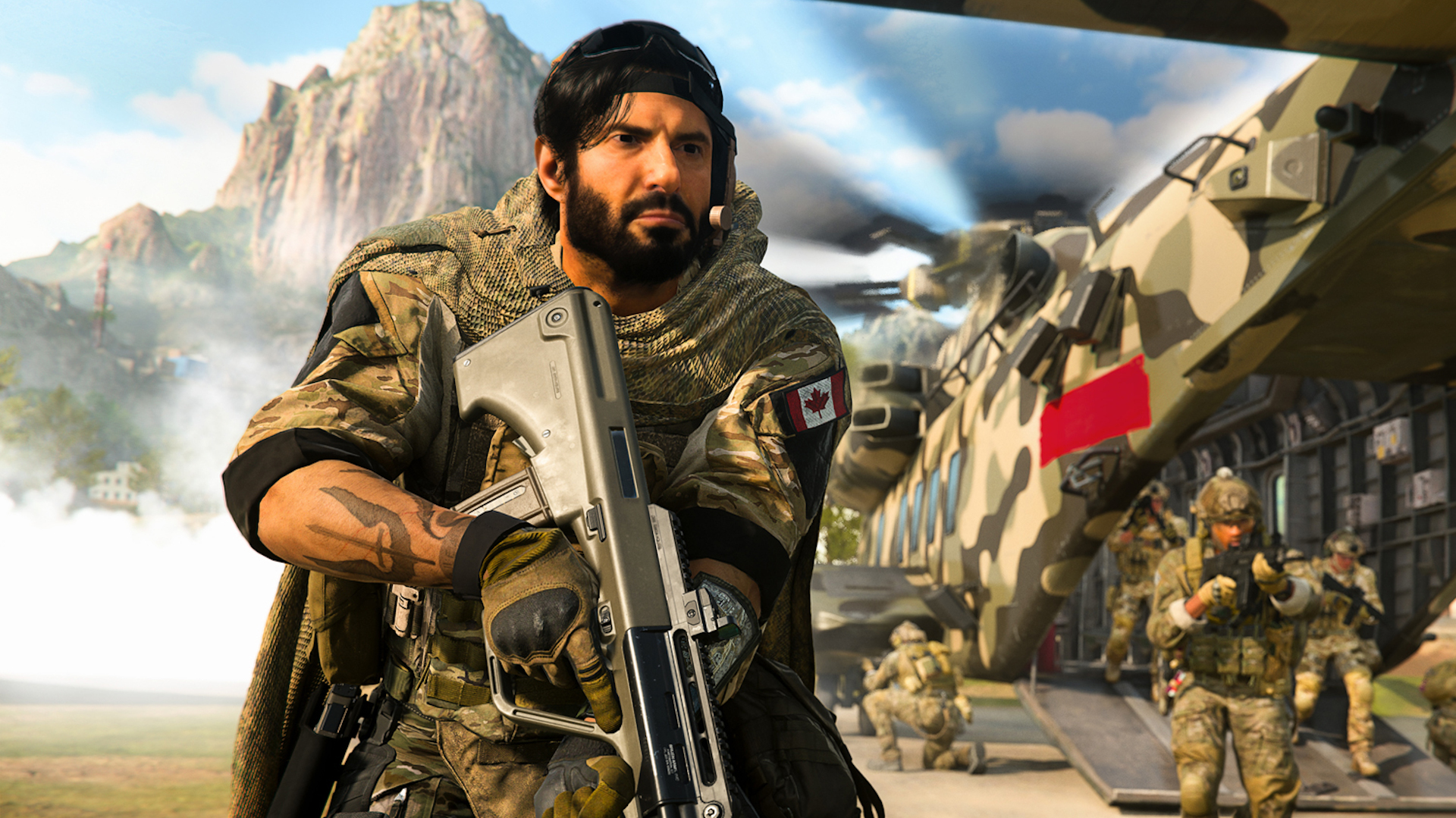Microsoft makes 10-year COD commitment to Steam and Nintendo in a deal that's really about Sony
These corporate manoeuvres are reaching Holy Roman Empire levels of political complexity at this point.

Update: In a statement provided to Kotaku, Valve's Gabe Newell said that, while "Microsoft offered and even sent [Valve] a draft agreement" to keep COD on Steam long-term, Valve decided it wasn't necessary.
Newell said Valve doesn't believe "in requiring any partner to have an agreement that locks them to shipping games on Steam into the distant future," that Microsoft and Phil Spencer "have always followed through on what they told us they would do," and that Microsoft "has all the motivation they need to be on the platforms and devices where Call of Duty customers want to be". So while Microsoft has a 10-year deal with Nintendo, its commitment to Steam is more of a gentlemen's agreement.
Original story: They finally did it, folks. After a prolonged will-they-won't-they, filled with all sorts of subtle hints and loaded implications, Microsoft has gone and tied the knot. In the event its $69 billion acquisition of Activision Blizzard goes through, the company has agreed to a 10-year deal to keep Call of Duty releasing on Steam and… Nintendo?
Apparently so! In a tweet posted last night, Xbox boss Phil Spencer confirmed that Microsoft has "entered into a 10-year commitment to bring Call of Duty to Nintendo following the merger of Microsoft and Activision Blizzard King," before adding that the company has also agreed "to continue to offer Call of Duty on Steam simultaneously to Xbox after we have closed the merger".
Good news for anyone determined to keep their library centralised on Steam, especially since the series only returned to the platform (after years away) with October's Modern Warfare 2 release. But the commitment to Nintendo is, at first, a little odd: You can't play a single COD game on Switch right now anyway, so why on Earth is Microsoft committing to a decade of Nintendo releases for the series?
Because it's not really about Nintendo—or Steam, for that matter—it's about Sony. The PlayStation maker has been a consistent thorn in Microsoft's side since the acquisition process began, and its complaints have mostly revolved around access to COD. Sony has complained to any national regulator that will listen that giving Microsoft domain over the Call of Duty series could have market-upending effects, and some of them have taken note. US, UK, and EU regulators have all murmured discontent about the acquisition, and their concerns mostly revolve around COD.
Thus this deal with Nintendo and Steam. Microsoft hasn't said this outright, of course, but it's pretty plain that deals like these are about showing national regulators that the company can be trusted to play nice with the series it owns and defanging Sony's complaints. Microsoft has been loudly talking about a similar 10-year offer it made to Sony in recent weeks, even going so far as to pen an article in the Wall Street Journal, saying the agreement could be made "legally enforceable by regulators in the US., UK. and European Union". But Sony has yet to accept.
The biggest gaming news, reviews and hardware deals
Keep up to date with the most important stories and the best deals, as picked by the PC Gamer team.
Microsoft likely hopes that by getting other industry titans on its agreement bandwagon it can pressure Sony into accepting that deal and dropping its main complaint about the Activision acquisition. Given how vociferous Sony has been in opposing it so far, though, I can't imagine the company will accept defeat quite that easily.
As for those of us outside the rarefied airs of games industry C-suites? Well, we'll get to keep playing COD on Steam for a while to come if the deal goes through, I guess. And I suppose the Switch owners out there can look forward to Call of Duty on whatever Nintendo's next console is, or maybe even on the Switch (somehow) if it sticks around long enough. All's well that ends well.

One of Josh's first memories is of playing Quake 2 on the family computer when he was much too young to be doing that, and he's been irreparably game-brained ever since. His writing has been featured in Vice, Fanbyte, and the Financial Times. He'll play pretty much anything, and has written far too much on everything from visual novels to Assassin's Creed. His most profound loves are for CRPGs, immersive sims, and any game whose ambition outstrips its budget. He thinks you're all far too mean about Deus Ex: Invisible War.

